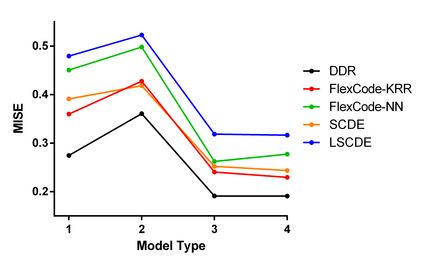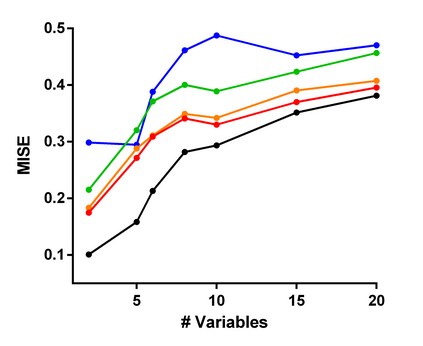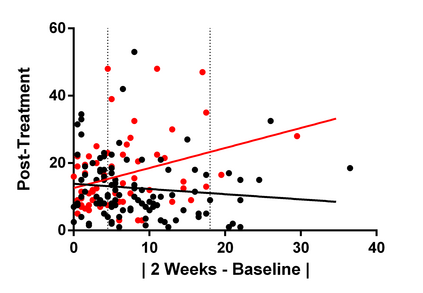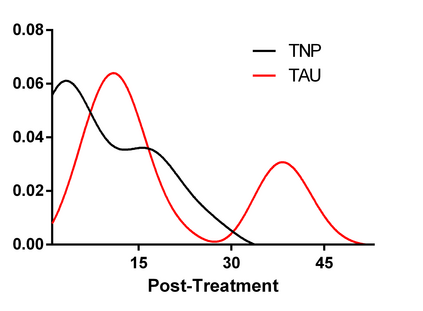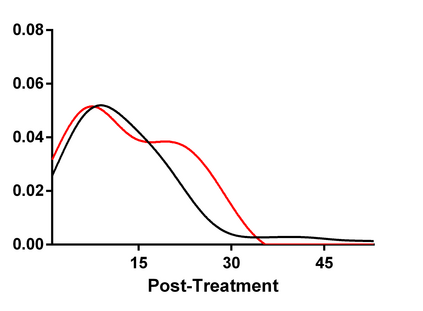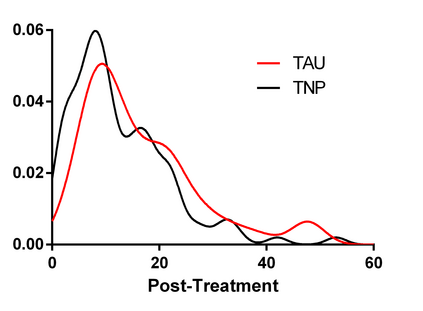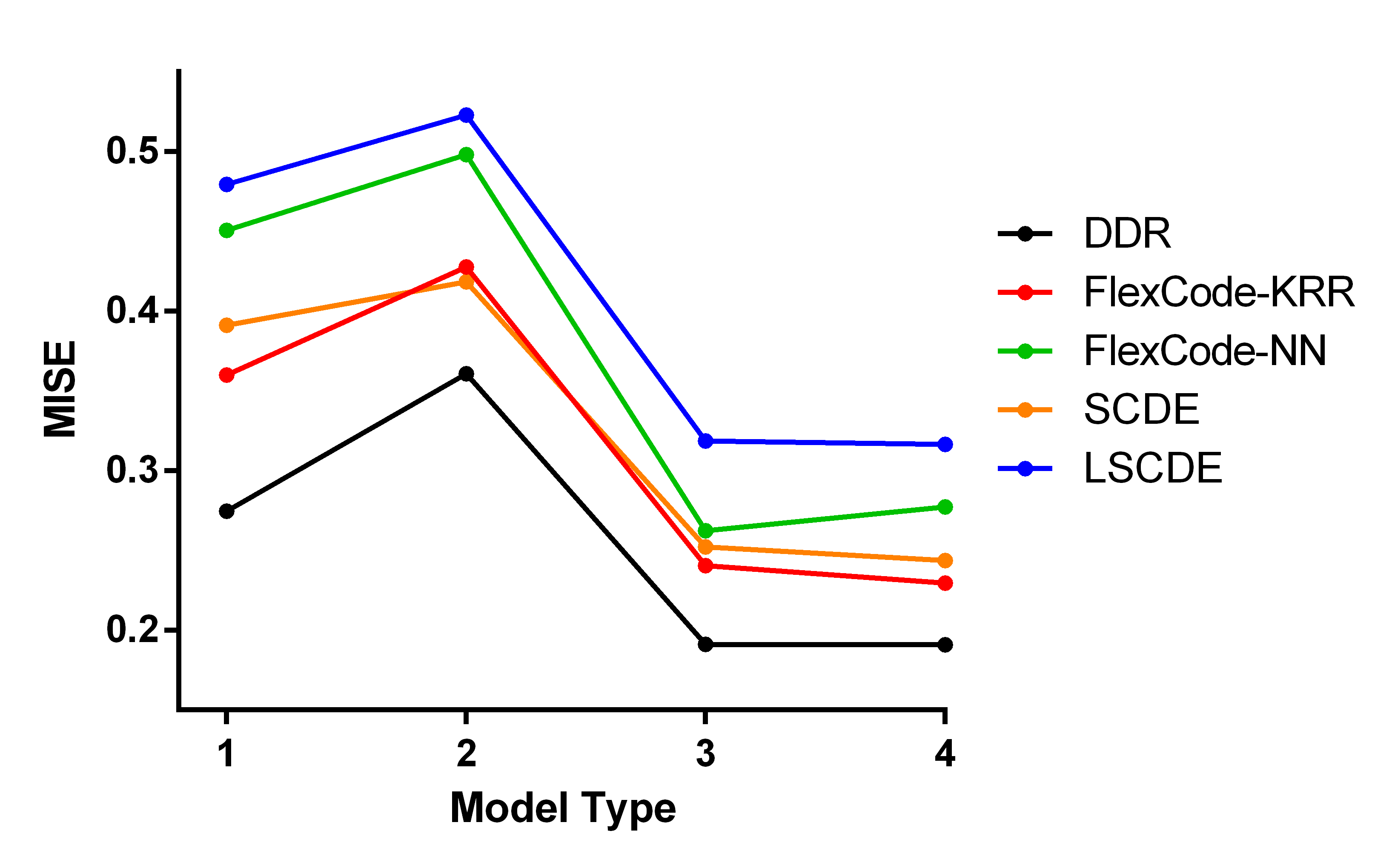Personalized medicine seeks to identify the causal effect of treatment for a particular patient as opposed to a clinical population at large. Most investigators estimate such personalized treatment effects by regressing the outcome of a randomized clinical trial (RCT) on patient covariates. The realized value of the outcome may however lie far from the conditional expectation. We therefore introduce a method called Dirac Delta Regression (DDR) that estimates the entire conditional density from RCT data in order to visualize the probabilities across all possible outcome values. DDR transforms the outcome into a set of asymptotically Dirac delta distributions and then estimates the density using non-linear regression. The algorithm can identify significant differences in patient-specific outcomes even when no population level effect exists. Moreover, DDR outperforms state-of-the-art algorithms in conditional density estimation by a large margin even in the small sample regime. An R package is available at https://github.com/ericstrobl/DDR.
翻译:多数调查人员通过递减随机临床试验(RCT)对病人共同变异的结果来估计这种个性化的治疗效果。结果的实际价值可能远远没有达到有条件的预期值。因此,我们采用了一种称为Dirac Delta Regrestition(DDRD)的方法,根据RCT数据估计整个条件密度,以便对所有可能的结果值的概率进行视觉分析。DDR将结果转换成一套无线性Dirac delta分布,然后用非线性回归法来估计密度。算法可以确定具体病人结果的重大差异,即使没有人口水平的影响。此外,DDDR比在有条件密度估计中,甚至小抽样制度中,都比标准值高。一个R包可以在 https://github.com/ericstrob/DDR上查阅。

